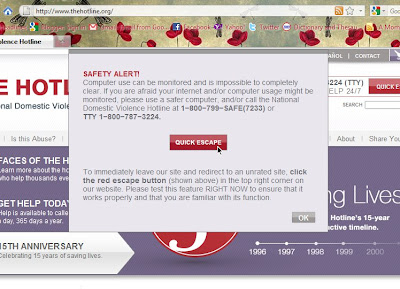“We have a right to choose our attitude.”
— Viktor Frankl, Austrian Neurologist
Author: areliscintron
Thought of the Day
“Sometimes our candle goes out, but is blown into flame by an encounter with another human being.”
— Albert Schweitzer, Humanitarian
Thought of the Day
“Sometimes our candle goes out, but is blown into flame by an encounter with another human being.”
— Albert Schweitzer, Humanitarian
Please don’t hurt me…
| Bleeding Heart by Arelis Cintron |
What is domestic abuse? Wikipedia.org defines it as: “Domestic violence, also known as domestic abuse, spousal abuse, child abuse or intimate partner violence (IPV), can be broadly defined as a pattern of abusive behaviors by one or both partners in an intimate relationship such as marriage, dating, family, friends or cohabitation.[1] Domestic violence has many forms including physical aggression (hitting, kicking, biting, shoving, restraining, slapping, throwing objects), or threats thereof; sexual abuse; emotional abuse; controlling or domineering; intimidation; stalking; passive/covert abuse (e.g., neglect); and economic deprivation.[1] Domestic violence may or may not constitute a crime, depending on local statutes, severity and duration of specific acts, and other variables. Alcohol consumption[2] and mental illness[3] can be co-morbid with abuse, and present additional challenges when present alongside patterns of abuse.”
Statistics:
- Every 15 seconds a woman is battered in the United States by her husband, boyfriend, or live-in-partner. (Source 1)
- Domestic Violence is the leading cause of injury to women between the ages of 15 to 44, more common than automobile accidents, muggings and rapes combined according to findings by the former U.S. Surgeon General C. Everett Koop. (Source 1)
- Other research has found that half of all women will experience some form of violence from their partners during marriage, and that one-third are battered repeatedly every year. (Source 1)
- Drinking proceeds acts of family violence in 25 to 50% of all cases of domestic violence. (Source 1)
- When I am asked why a man/woman doesn’t leave abuser I say: They stay because the fear of leaving is greater than the fear of staying. They will leave when the fear of staying is greater than the fear of leaving.( Rebecca J. Burns TheLastStraw)
- Sexual violence, sexual coercion and dating violence are significant issues for young people though frequently unrecognized and even more often, untreated. (Source 2)
- The Violence Against Women Act of 2005 was the first comprehensive federal legislation to address violence against women in the United States. (Source 2)
- One of the most common reasons an abused woman stays in a relationship is because she is economically dependent on the abuser. (Source 3)
- Elder abuse is the maltreatment of an elderly or disabled person by a family member or caretaker. As with intimate partner violence and abuse, elder abuse can include physical, sexual, or psychological abuse; financial exploitation, and/or neglect, including the denial of basic needs such as food and medical care. (Source 3)
- Child abuse, or child maltreatment, is an act by a parent, caretaker, sibling, family member, or other person that results in the physical or emotional harm or death of a child. Emotional abuse, neglect, physical abuse and sexual abuse are all different forms of child abuse. (Source 3)
- One in 10 American couples engages in intimate partner violence each year. (Source 4)
- Men and women initiate domestic violence at similar rates. (Source 4)
- Partner aggression is often two-way. (Source 4)
- Many factors contribute to domestic violence incidents. (Source 4)
- Many victims of domestic violence face barriers to getting help. Men Specifically. (Source 4)
Warning Signs: From the Connecticut Coalition Against Domestic Violence:
Does your partner:
- constantly criticize you and your abilities as a spouse or partner, parent or employee?
- behave in an over-protective manner or become extremely jealous?
- threaten to hurt you, your children, pets, family members, friends or himself?
- prevent you from seeing family or friends?
- get suddenly angry or “lose his temper”?
- destroy personal property or throw things around?
- deny you access to family assets like bank accounts, credit cards, or the car, or control all finances and force you to account for what you spend?
- use intimidation or manipulation to control you or your children?
- hit, punch, slap, kick, shove, choke or bite you?
- prevent you from going where you want to, when you want to, and with whomever you want to?
- make you have sex when you don’t want to or do things sexually that you don’t want to do?
- humiliate or embarrass you in front of other people?
It you answered “yes” to any of these questions, you may be a victim of domestic violence. You are not to blame and you are not alone…On their site if you need help or someone to talk to the number is 888-774-2900.
Get Help: (Source 5) SAFETY ALERT: If you are in danger, please call 911, your local hotline, or (in the U.S.) the National Domestic Violence Hotline: 1-800-799-7233 or TTY 1-800-787-3224. http://www.thehotline.org/ A nice feature of this website is the pop up window; the Quick Escape button, located at the top Right hand of each page on the website, redirects the user IMMEDIATELY to an unrated site.
If you feel you are in danger PLEASE:
- Tell a trusted friend, coworker or neighbor about your situation
- Hide a bag at a neighbor or friend’s house with keys, identification, money and copies of important documents
- Have a phone accessible at all times and know which numbers to call for help
Male Victims of Domestic Abuse
Domestic violence against men: Know the signs, seek help
A Hidden Crime: Domestic Violence Against Men Is a Growing Problem
Connecticut Judicial Branch, Law Libraries: Domestic Violence In Connecticut http://www.jud.ct.gov/lawlib/Law/domesticviolence.htm
Upcoming quotes in October will be from: The Last Straw Blog
Thought of the Day
“Kindness is more important than wisdom, and the recognition of this is the beginning of wisdom.”
— Theodore Isaac Rubin, Psychiatrist
Thought of the Day
“Rowing harder doesn’t help if the boat is headed in the wrong direction.”
— Kenichi Ohmae, business coach
Thought of the Day
“Rowing harder doesn’t help if the boat is headed in the wrong direction.”
— Kenichi Ohmae, business coach

